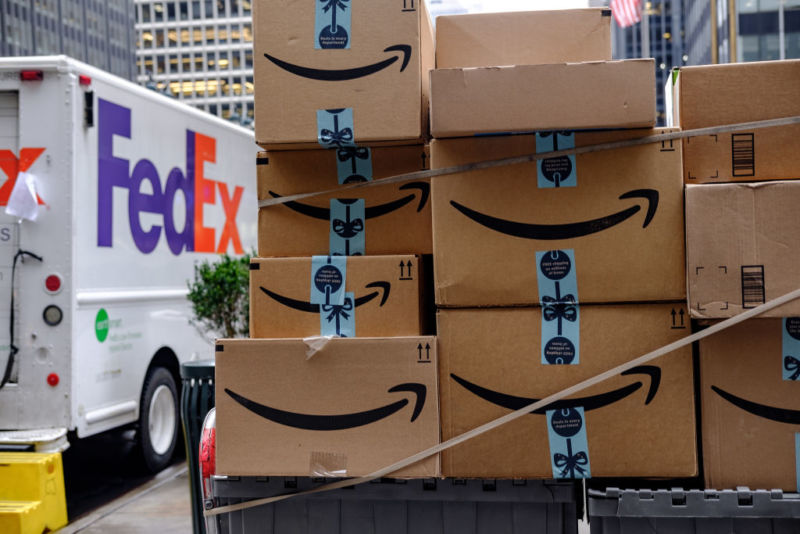
If you’re cramming last-minute Christmas or Hanukkah shopping online ahead of next week’s holidays, and it absolutely, positively has to be there overnight, don’t count on FedEx being the service to get it there for you. Not only is Amazon no longer working with the carrier, but now third-party merchants are banned from using the service, too.
The Wall Street Journal obtained a copy of a message Amazon sent to its third-party vendors Sunday night explaining the prohibition. Starting this week, marketplace vendors offering Prime shipments will not be allowed to use FedEx Ground or Home services. This ban will persist “until the delivery performance of these ship methods improves.”
Third-party retailers accounted for about 58% of Amazon’s retail activity in 2018, company CEO Jeff Bezos said earlier this year, and sold a cumulative $160 billion worth of goods. The vendor marketplace is on track to be at least as large a share of Amazon’s retail business in 2019.
FedEx ended its last domestic contract with Amazon in August in part due to that in-house business. “High-volume shippers such as Amazon “are developing and implementing in-house delivery capabilities and utilizing independent contractors for deliveries, and may be considered competitors,” FedEx wrote in an investor document earlier this year. The company added that Amazon in particular is “investing significant capital to establish a network of hubs, aircraft, and vehicles.”
A FedEx representative told the WSJ that the impact to the shipping firm is “minuscule,” while admitting that Amazon’s directive “limits the options for those small businesses on some of the highest shipping days in history.”
Marketplace sellers selling items marked for Amazon Prime delivery can use UPS services, FedEx’s Express service (which is pricey), or Amazon’s own in-house logistics business (which the company heavily encourages vendors to use). That encouragement is so heavy, in fact, that at least one merchant has complained to Congress that the shipping business should be considered one of Amazon’s many potential antitrust violations.
https://cms.arstechnica.com/?p=1633491

